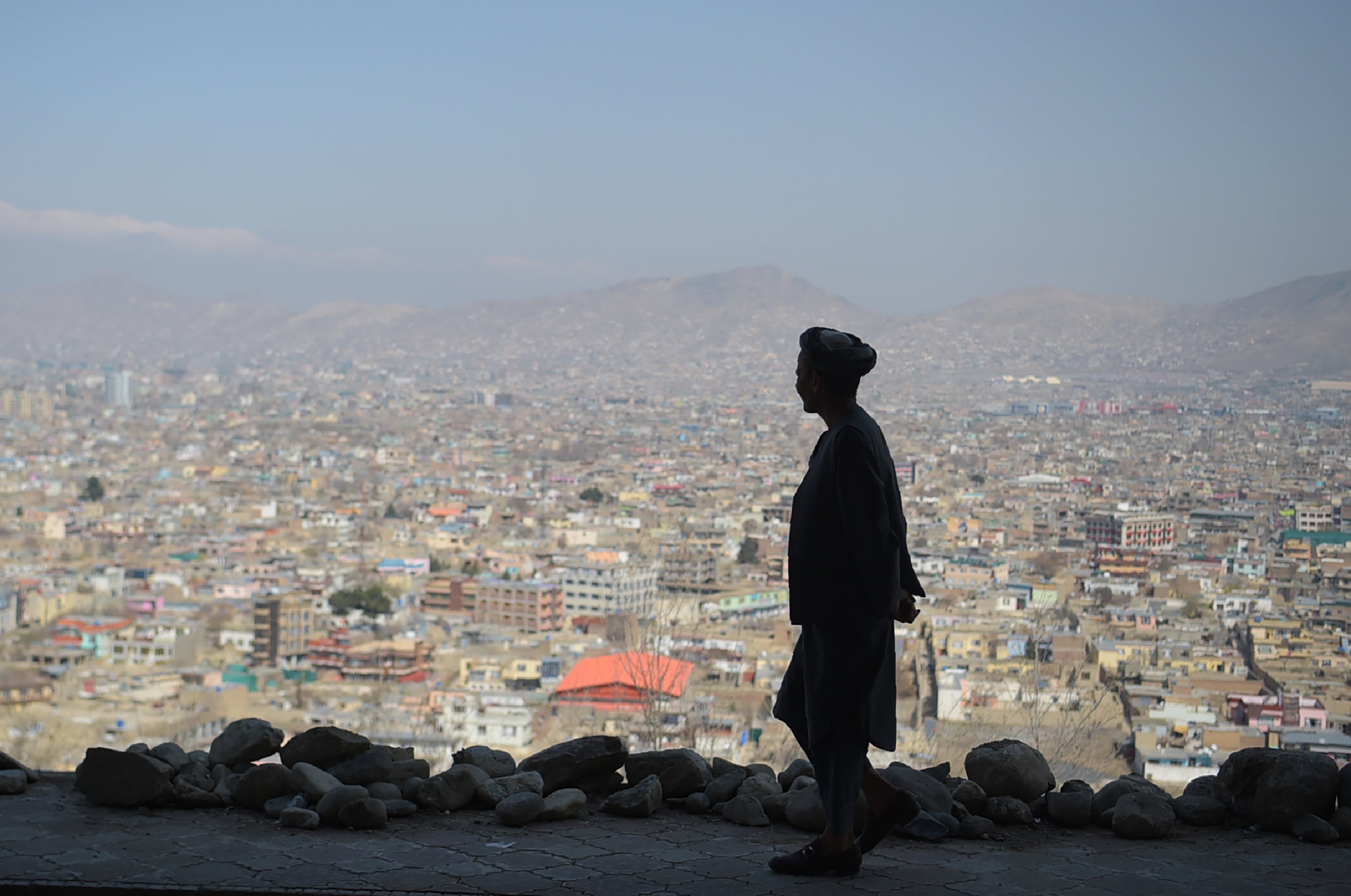What happens to the security around Kabul airport will offer a glimpse into Afghanistan’s future
Turkey is set to protect the airport once international troops pull out, writes Borzou Daragahi – but what will this mean for the country’s own security forces?


International troops are set to depart Afghanistan this year, ending what will likely be remembered as one of the lengthiest – and most costly – military entanglements since the long wars of the Enlightenment.
But there is one security function in which international forces may continue to take the lead. Even after almost all other troops have left, Turkish forces serving under Nato’s Resolute Support Mission are planning to continue to safeguard Kabul’s Hamid Karzai international airport.
There is little doubt that Turkey can guard an airport. And it’s not inevitable that Ankara would get sucked into Afghanistan in a destructive way; in recent years it has managed to intervene militarily in Libya and Azerbaijan, and maintains a base in Somalia and a major presence in northern Syria – all without suffering too much blowback.
The greater worry is the damage such continued foreign dependence could do to Afghan security forces.
For Turkey, the only overwhelmingly Muslim member of Nato, protecting the airport proves its worth to the United States and other allies at a time when relations between Ankara and western capitals have reached a nadir.
There are also suggestions that Turkey is seeking to bolster its ties to Kabul with the aim of establishing a corridor between the Caucasus and central Asia, both home to Turkic populations.
Turkey’s continued role could also be seen as a win for the US. By safeguarding a crucial commercial, political and humanitarian lifeline in a landlocked country of treacherous mountain roads, the act of handing over the airport eases the worries of US officials planning an exit from the country at a time when the Taliban are surging and Isis continues to be a presence.
“America is preparing to leave Afghanistan soon, and from the moment they leave, the only reliable country to maintain the process over there is obviously Turkey,” President Recep Tayyip Erdogan told reporters en route to the Nato summit this month.
But it’s important to emphasise that, while ordinary Afghans are understandably edgy about the impending departure of international troops, the only way that withdrawal will not actually result in an eventual defeat for the elected government and a triumphant return of the Taliban is for Afghan security forces to rise to the occasion.
It’s important to remember that the Taliban did not immediately take over after the Soviet withdrawal in 1989. The government of Mohammad Najibullah held on for three years, despite an onslaught against it by the Mujahedin. And it was years of infighting between the various factions that took over Kabul after Najibullah that paved the way for the Taliban.
The Afghan armed forces of today, after 20 years under the tutelage of Nato troops, are far better equipped and trained than the ragtag militias who swarmed Kabul in 1992 and then failed to fend off the Taliban’s advances. The government of President Ashraf Ghani in Kabul today is also far more palatable than either that of Najibullah or the miltiias that took over after him.
A recent editorial in the Afghan newspaper Eslah noted that Afghan forces are already carrying out the most sensitive and dangerous security operations against both the Taliban and Isis.
“When Afghanistan's national security and defence forces shoulder the responsibility of fighting more than 20 terrorist groups in the country, it is not logical to hand the security of an airport over to another country,” it said.
It warned that having foreign forces keep control of such a high-profile institution could actually damage public perception of the country’s own capabilities. Afghans who have fled abroad often say it’s the fear that the government can’t fight the Taliban – more than any specific shortcomings – that prompted their migration.
“The transfer of Kabul airport security to Turkish forces would, in fact, raise doubts and uncertainty about the capability of the Afghan security and defence forces and will have negative impacts on the morale and confidence of these forces,” said the editorial. “Such a decision may create an atmosphere of mistrust between the government and the people of Afghanistan and damage the image and prestige of the government.”
The Taliban insists that the continued presence of Turkish or any other troops from abroad in Afghanistan would be unacceptable. That suggests that posting foreign military forces at the airport may actually turn the civil aviation facility into a magnet for violence, and potentially make it less safe.
Join our commenting forum
Join thought-provoking conversations, follow other Independent readers and see their replies
Comments